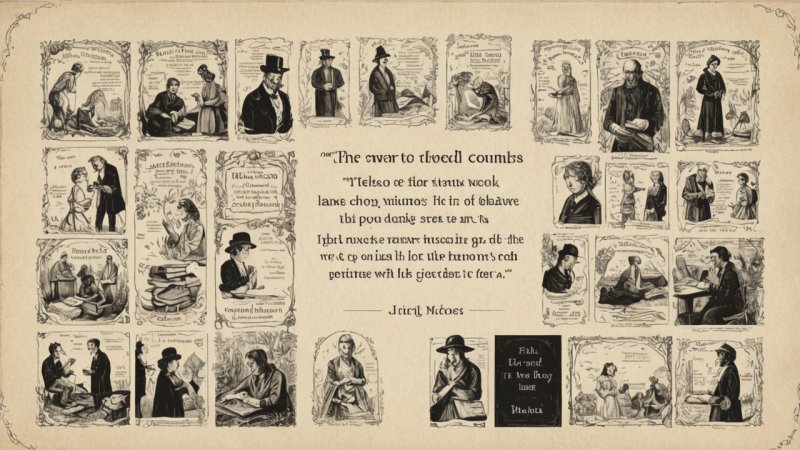Classic literature often holds a mirror to society, reflecting its values, struggles, and aspirations. However, for many readers, diving into these timeless works can feel daunting. The language may be archaic, the references obscure, and the themes profound yet elusive. Yet, understanding the themes in classic literature is not only rewarding but also essential for grasping the deeper meanings behind the text. This article will guide you through the process of uncovering the significant themes present in classic works, providing you with tools to appreciate these literary treasures.
Recognizing Common Themes
Many classic works of literature share common themes that resonate across different cultures and time periods. These themes often explore universal human experiences, allowing readers to connect on a deeper level. Some of the most prevalent themes include:
- Love and Relationship: From the passionate love stories of Shakespeare to the complex familial bonds in Tolstoy's works, the theme of love is ever-present.
- Identity and Self-Discovery: Characters often embark on journeys to discover themselves, as seen in novels like "The Catcher in the Rye" by J.D. Salinger.
- Social Critique: Many classics, such as "Pride and Prejudice" by Jane Austen, critique societal norms and class structures.
- Mortality and the Human Condition: The exploration of life, death, and the meaning of existence is a central theme in works by authors like Fyodor Dostoevsky.
- Conflict and Resolution: Whether internal or external, conflict drives the narrative forward and provides insight into the human experience.
Contextualizing the Work
Understanding the historical and cultural context of a classic literary work is crucial for interpreting its themes. Authors often write in response to the social, political, and economic conditions of their time. For instance, Charles Dickens’ novels often highlight the struggles of the poor in Victorian England, while the themes in Mark Twain’s "The Adventures of Huckleberry Finn" reflect the racial tensions of 19th-century America. To deepen your understanding, consider researching the author’s background, the period in which the work was written, and the societal issues that may have influenced the text.
Analyzing Characters and Their Journeys
The characters in classic literature are often complex and multi-dimensional, serving as vessels for the exploration of various themes. Pay attention to the protagonist's journey—what challenges do they face, and how do they evolve throughout the story? For instance, in "Moby Dick" by Herman Melville, Captain Ahab's obsessive pursuit of the whale serves as a metaphor for humanity's struggle against fate and the unknown. By analyzing how characters embody and confront these themes, readers can gain valuable insights into the narrative's underlying messages.
Reading Between the Lines
Classic literature often employs symbolism, metaphors, and allegory to convey deeper meanings. Take the time to dissect the language and imagery used by the author. For example, in "The Great Gatsby" by F. Scott Fitzgerald, the green light symbolizes Gatsby's unattainable dreams and the broader theme of the American Dream's corruption. Look for recurring motifs and symbols that contribute to the overall theme, and consider how they interact with the plot and character development.
Engaging with Literary Criticism
Literary criticism can provide valuable insights into the themes of classic literature. Engaging with different interpretations of a work can enrich your understanding and reveal layers of meaning you may have overlooked. Consider reading essays, critiques, or analyses from various literary scholars. Discussions about the themes in classic literature often lead to diverse interpretations, allowing you to appreciate the multifaceted nature of these works.
Discussion and Reflection
Often, the best way to grasp the themes in classic literature is through discussion and reflection. Join reading groups, participate in online forums, or engage in conversations with fellow literature enthusiasts. Sharing your thoughts and hearing others' perspectives can uncover new interpretations and understandings of the themes present in the text. Additionally, keep a reading journal to document your thoughts, feelings, and insights as you navigate through classic works.
Conclusion
Understanding themes in classic literature requires patience, curiosity, and a willingness to engage deeply with the text. By recognizing common themes, contextualizing the work, analyzing characters, reading between the lines, engaging with literary criticism, and participating in discussions, you can develop a richer appreciation for these timeless narratives. As you embark on this journey through classic literature, remember that each reading offers new insights and experiences, inviting you to explore the depths of human experience and imagination.






